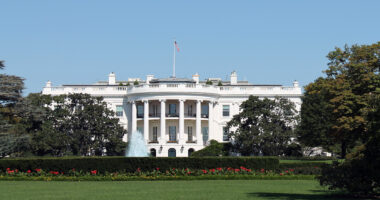Tracking CFOs’ Business Confidence and Global Economic Outlook
After showing strong confidence in the overall economic performance and company performance, chief financial officers (CFOs) are tempering their outlook.
A recent measure of business confidence shows that concerns over geopolitical risk and talent concerns may be limiting growth prospects. DCAT Value Chain Insights examines the issues and looks at global economic prospects.
Gauging CFOs’ confidence levels
Overall business confidence, whether in the performance of the global or US economies, is an important consideration in evaluating near and future growth prospects. A recent survey by Deloitte of chief financial officers representing many of North America’s largest and most influential companies reveals a drop in perceptions of own-company prospects and expectations about the future status of the North American economy.
The Deloitte study, the CFO Signals survey for the third quarter of 2017, was conducted during the two-week period beginning August 7 and ending August 18, 2017. A total of 160 CFOs responded during this time. Seventy-three percent of respondents were from public companies, and 82% were from companies with more than $1 billion in annual revenues.
After two strong quarters to start 2017, CFOs’ assessments of the current status of the North American economy remain high in the third quarter, with 64% saying current conditions are good compared with 65% last quarter. Perceptions of its future health, however, declined significantly as only 45% expect better conditions in a year, compared with 58% in the second quarter of 2017. CFOs’ assessments of the European and Chinese economies continue to show improvement with 29% of CFOs saying current conditions in Europe are good—the highest level in four years and up from 17% in the second quarter—and 32% saying conditions in China are good, up from 28% last quarter.
CFOs’ confidence in their own companies’ prospects in the third-quarter survey showed its largest decline since the first quarter of 2015, with net optimism declining 15 points since last quarter. Forty-five percent express higher optimism while 16% cite lower optimism.
“Considering the multiyear highs in sentiment recorded in the first quarter of this year and continued strength in the second quarter, the downturn in CFOs’ sentiment and expectations this quarter may indicate that lingering political, talent and geopolitical concerns are beginning to take their toll,” said Sandy Cockrell III, national managing partner of the US CFO Program, Deloitte LLP, in commenting on the study.
Each quarter, CFOs are surveyed about their most concerning external and internal risks. This quarter, US political turmoil, geopolitical risks, and global economic concerns top the list of the most worrisome external risks, according to the Deloitte survey. Talent concerns have been near the top of CFOs’ most worrisome internal risks for several years. They top the list again this quarter, joined by escalating concerns about technology disruption and managing technological change.
All four business outlook metrics, tracked by the Deloitte survey for 30 consecutive quarters, remain strong. Revenue growth expectations rose from 5.6% last quarter to 5.7% above the two-year average. Earnings-growth expectations declined from 8.7% last quarter to 7.9%, but remain above the two-year average. Capital investment growth expectations fell once again from 9% last quarter to 7.3% but remain among five-year highs. Finally, bolstered by expectations from CFOs in Canada and Mexico, domestic hiring expectations spiked from 2.1% last quarter to 2.6% this quarter.
Additionally, a majority of CFOs are taking a proactive view with 60% of surveyed CFOs biased toward revenue growth over cost reduction and 56% biased toward investing cash over returning it to shareholders. Fifty-six percent of CFOs say this is a good time to take greater risk, down slightly from the previous two quarters’ survey-high of 60%. Sixty-two percent of CFOs favor current geographies over new ones, and 61%, a survey-high, are biased toward organic growth over inorganic growth.
“It is encouraging that CFOs remain quite optimistic about their companies’ prospects despite the growing economic, political, geopolitical and talent concerns they have been voicing over the past few quarters,” said Greg Dickinson, managing director, Deloitte LLP, who leads the North American CFO Signals survey in commenting on the results. “As companies come to grips with the aftermath of multiple devastating hurricanes and earthquakes—all of which occurred after the survey period—and continue to watch geopolitical conflicts and U.S. policy developments unfold, it will be interesting to see how their expectations will adjust.”
Outlook for the global economy
A recent analysis by the Organization for Economic Co-operation and Development (OECD) shows that pace of expansion is projected to be faster in 2017 than in 2016, with a further uptick expected in 2018, but strong, sustainable, and inclusive medium-term growth is not yet secured. “The short-term outlook is more broad-based and the upturn is promising, but there is no room for complacency,” said OECD Chief Economist Catherine L. Mann, in an analysis provided on September 20, 2017. “Monetary policy should remain accommodative in some economies but with an eye on financial stability so as to remain supportive of further rebalancing towards fiscal and structural initiatives. Structural efforts need to be intensified to bolster the nascent investment recovery, to address slow productivity growth and to ensure the recovery yields benefits for all.”
The OECD projects that the global economy will grow by 3.5% this year and 3.7% in 2018, with industrial production and trade picking up and further acceleration in the rebound of technology spending. Growth among the major advanced economies remains on pace. In the US, growth is estimated at 2.1% in 2017 and 2.4% in 2018, supported by stronger consumer spending and business investment. Job creation has remained strong, but the extent to which fiscal easing and regulatory reform may provide an additional boost in 2018 remains uncertain, noted the OECD.
The euro area is projected to grow at a 2.1% rate in 2017 and a 1.9% pace in 2018 – upward revisions from previous projections driven by stronger growth in key European countries. Germany is forecast to grow by 2.2% in 2017 and 2.15 in 2018, and France by 1.7% in 2017 and 1.6% in 2018. Italy is projected to experience a 1.4% growth rate this year and a 1.2% rate in 2018. The revised projections by the OECD reflect stronger-than-expected performance in the first half of 2017, rising employment rates, accommodative monetary policy, and reduced political uncertainty. The upswing is also driven by stronger consumption growth and investment, as well as healthy export growth.
In the US, the growth slowdown is expected to continue through 2018 while uncertainty remains over the outcome of negotiations around the UK’s decision to leave the European Union. The unemployment rate has fallen to below 4.5%, but weak productivity and real wage growth persist. The depreciation of the sterling has modestly improved export prospects but also pushed up inflation. In this environment, the UK is projected to grow by 1.6% in 2017 and 1% in 2018.
Growth in Japan increased in the first half of 2017, supported by an upturn in public investment and stronger growth in Asian markets and is projected at 1.6% for 2017. The OECD said that rising corporate profits should help strengthen business investment through 2018, but low wage growth and fiscal consolidation are likely to weigh on activity in 2018, when growth is expected at 1.2%. Canadian growth is projected at 3.2% this year and 2.3% in 2018.
Growth in the major emerging market economies has improved overall, helped by a rebound in some commodity producers and public infrastructure investment in China although growth remains subdued in a number of oil-exporting economies, according to the OECD analysis. Growth in China is revised upward, to 6.8% in 2017 and a more moderate 6.6 percent in 2018, as stimulus measures ease and efforts continue to stabilize corporate debt and rebalance the economy.
In India, the transitory effects of demonetization and of the implementation of the Goods and Services Tax (GST) have led to a downward revision in growth projections, to 6.7% in 2017 and 7.2% in 2018. In the longer run, the GST is expected to boost investment, productivity and growth, according to the OECD analysis.
Russia is rebounding from a recession with higher oil prices and lower interest rates providing a near-term boost to growth, which is projected at around 2% in 2017 and 2018. In Brazil, monetary easing is helping the gradual recovery and the strong decline in inflation is supporting consumer confidence. Growth is projected at 0.6% in 2017 and 1.6% in 2018, but medium-term growth prospects hinge on delivering reforms – including pension reforms – to ensure fiscal sustainability and enhance productivity growth, according to the OECD analysis.





